Over 30 years of anarchist writing from Ireland listed under hundreds of topics
Squat
Thoughts on Squatting & Social Centers
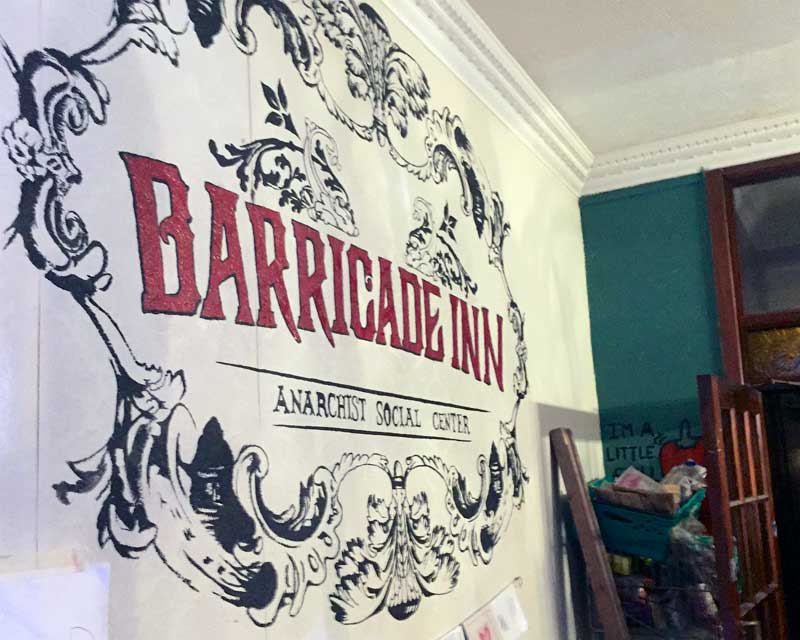 Over the previous year myself and a small number of comrades have been involved in housing activism in Dublin, specifically in relation using squatting or using occupation as a tactic. This is meant to be a short piece on some of the lessons learnt to inform activists who wish to get involved in this sort activity.
Over the previous year myself and a small number of comrades have been involved in housing activism in Dublin, specifically in relation using squatting or using occupation as a tactic. This is meant to be a short piece on some of the lessons learnt to inform activists who wish to get involved in this sort activity.
At the start of our career as squatter/housing activists over a year ago occupying buildings seemed like the primary logical option available to us. Not only was it an available and sensible form of direct action, which informed by our Social Anarchist politics was invariable the best and most effective tactic to use, it was also an easy way to alleviate the housing crisis.
Barricade Inn - Trials and Tribulations
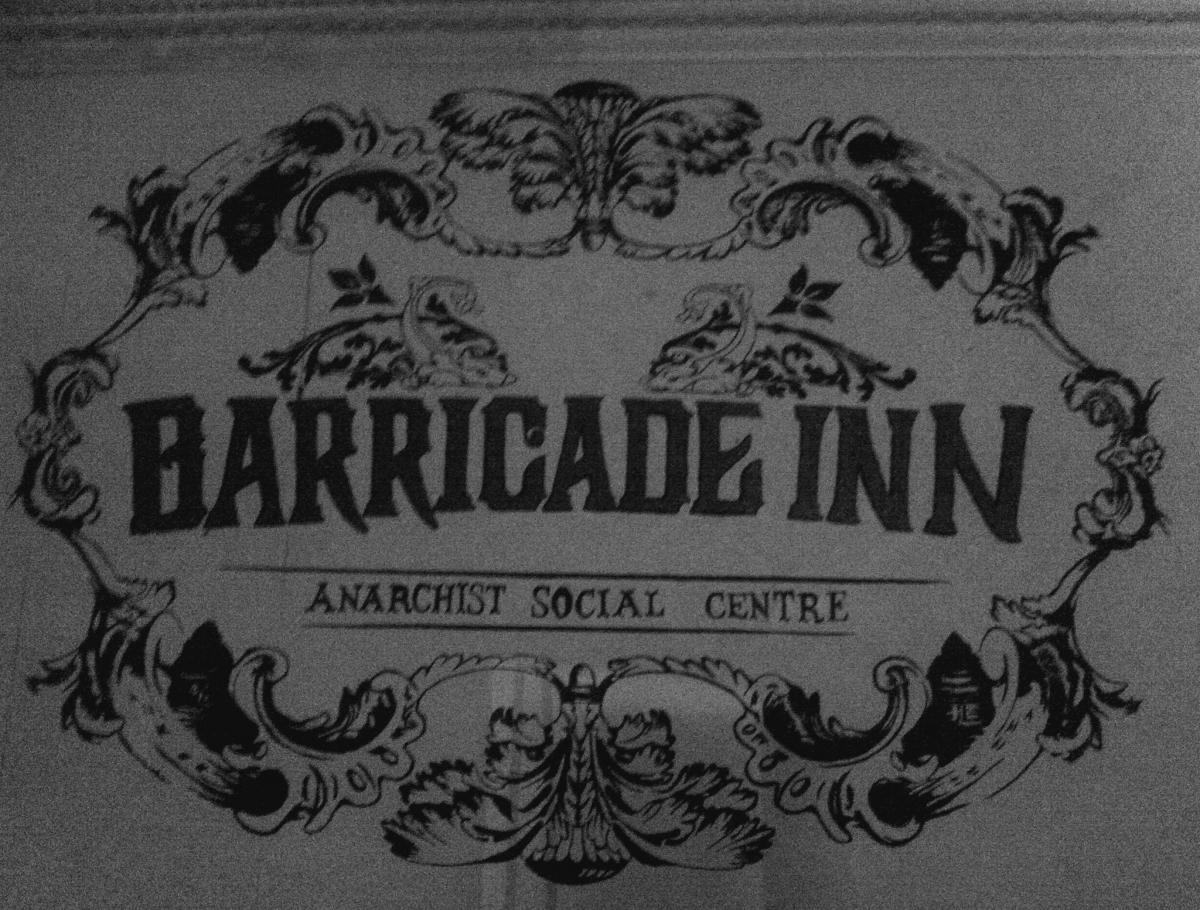 Two weeks ago, at the judge’s discretion, the high court issued an injunction to make the occupation of the Barricade Inn illegal, coming into effect from tomorrow. It seems this may bring an end to one of the most ambitious projects the anarchist squatter movement has yet attempted. A radical, anti-capitalist social centre in the heart of Dublin, open to the public and right next to one of the city's main thoroughfares. A valuable resource for activists to organise and engage with the public. A focal point for outreach, with the hope of spreading the dreams and ideals of anarchism that were its inspiration.
Two weeks ago, at the judge’s discretion, the high court issued an injunction to make the occupation of the Barricade Inn illegal, coming into effect from tomorrow. It seems this may bring an end to one of the most ambitious projects the anarchist squatter movement has yet attempted. A radical, anti-capitalist social centre in the heart of Dublin, open to the public and right next to one of the city's main thoroughfares. A valuable resource for activists to organise and engage with the public. A focal point for outreach, with the hope of spreading the dreams and ideals of anarchism that were its inspiration.
Better to Squat Than Let Homes Rot
On the merits of Squatting as a tactical response to the permanent housing crisis.
Squatting & the property question - Personal Possessions & Communal Property v Private Property
After an illegal eviction on Phibsborough Rd. in June much debate arose surrounding the legitimacy of the squatters and their rights to take over empty and unused properties and put them to use. This piece looking at the issue of squatting and property rights was written by a WSM member and an An Spreach member who was evicted on that day from the property.
Summer of evictions in Dublin - video interview
An interview about the wave of occupations and evictions that took place in the first half of 2015 in Dublin.
An attempt to liberate a vacant council flat for a homeless mother and her children
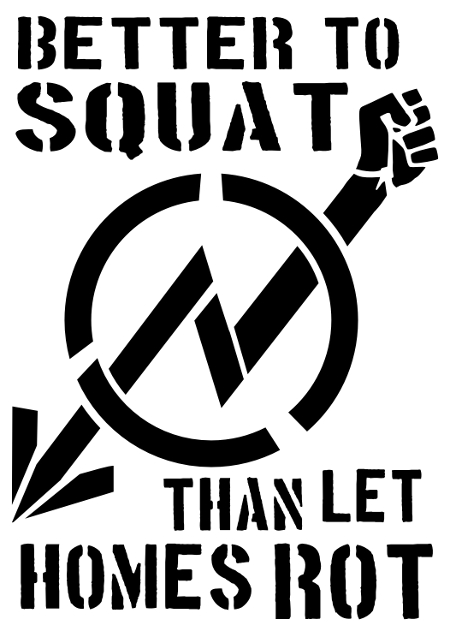 Myself and some comrades were approached by a young mother from Coolock that recently became homeless. The woman and her children became homeless a few weeks previous. While her kids are in school during the day the mother either walks the streets or calls into friends or family member’s homes. When school has ended for the day they have to rely on family and friends to let them stay in their homes. Sometimes the mother has to split her children up so that she’d definitely have a roof over all her kid’s heads for the night.
Myself and some comrades were approached by a young mother from Coolock that recently became homeless. The woman and her children became homeless a few weeks previous. While her kids are in school during the day the mother either walks the streets or calls into friends or family member’s homes. When school has ended for the day they have to rely on family and friends to let them stay in their homes. Sometimes the mother has to split her children up so that she’d definitely have a roof over all her kid’s heads for the night.
She had to leave the house she was renting because of the condition the house was in. She went to Dublin City Council (DCC) and because of the advice given to her by the council she registered herself as being homeless. She asked the council to be put up in one of the state’s homeless hostels or money for a hotel room or a B&B. She was told there is no more spaces left in the hostels, but the council would give her money for a hotel room or B&B. The young mother spent days then weeks trying to get a room in a hotel or B&B that would be suitable for her and her children, but to no avail. She had to survive from the good will of her friends and family.
Self organising and the city - Squatting panel at Dublin Anarchist Bookfair 2015 video & audio
What are the challenges and possibilities of popular self-organisation to reclaim our lives, our homes and our cities.
At this years Dublin anarchist bookfair Jenny and Zoe looked at recent occupations in Dublin, including the Grangegorman Squat in Smithfield where resistance to eviction is ongoing
The Housing Crisis is Really a Capitalist Crisis - Resist, Repopulate, Reclaim!
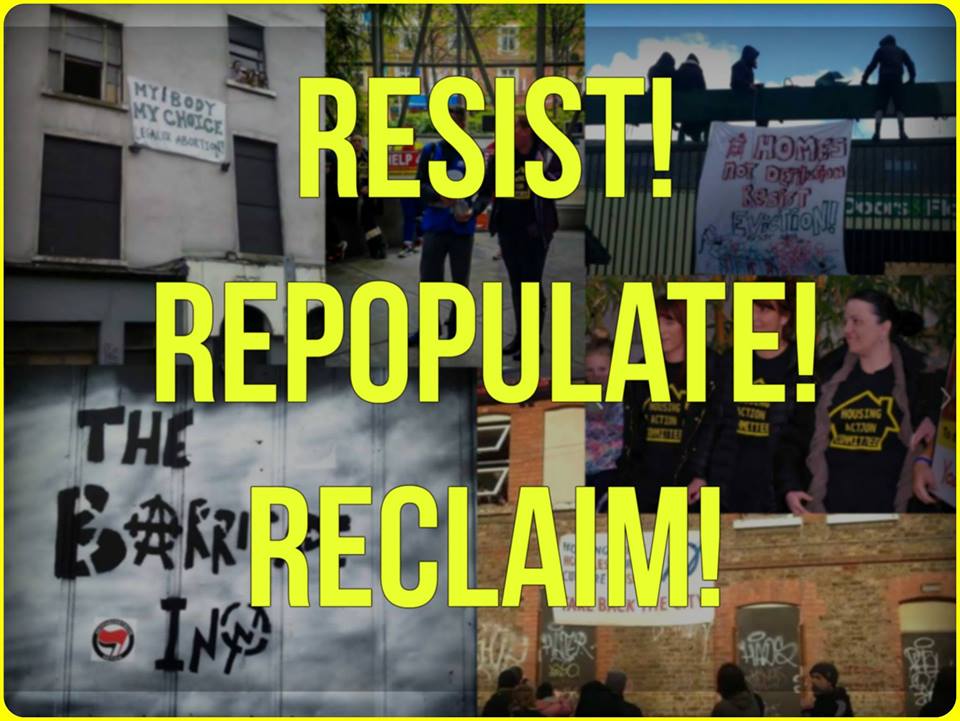 “Ours is a society in which, in every field, one group of people makes decisions, exercise control, limits choices, while the great majority have to accept these decisions, submit to this control and act within the limits of these externally imposed choices. Nowhere is this more evident than in the field of housing: one of those basic human needs which throughout history and all over the world people have satisfied as well as they could for themselves, using the materials what were at hand and their own, and their neighbors labor. The marvelously resourceful anonymous vernacular architecture of every part of the globe is a testimony to their skill, using timber, straw, grass, leaves, hides, stone, clay, bone, earth, mud sand even snow. Consider the igloo: maximum enclosure of space with minimum of labor. Cost of materials and transportation, nil. And all made of water. Nowadays, of course, the Eskimos live on welfare handouts in little northern slums. Man, as Habraken says “no longer houses himself: he is housed” – Colin Ward
“Ours is a society in which, in every field, one group of people makes decisions, exercise control, limits choices, while the great majority have to accept these decisions, submit to this control and act within the limits of these externally imposed choices. Nowhere is this more evident than in the field of housing: one of those basic human needs which throughout history and all over the world people have satisfied as well as they could for themselves, using the materials what were at hand and their own, and their neighbors labor. The marvelously resourceful anonymous vernacular architecture of every part of the globe is a testimony to their skill, using timber, straw, grass, leaves, hides, stone, clay, bone, earth, mud sand even snow. Consider the igloo: maximum enclosure of space with minimum of labor. Cost of materials and transportation, nil. And all made of water. Nowadays, of course, the Eskimos live on welfare handouts in little northern slums. Man, as Habraken says “no longer houses himself: he is housed” – Colin Ward
Grangegorman residents key points on the March 2015 attempt to evict
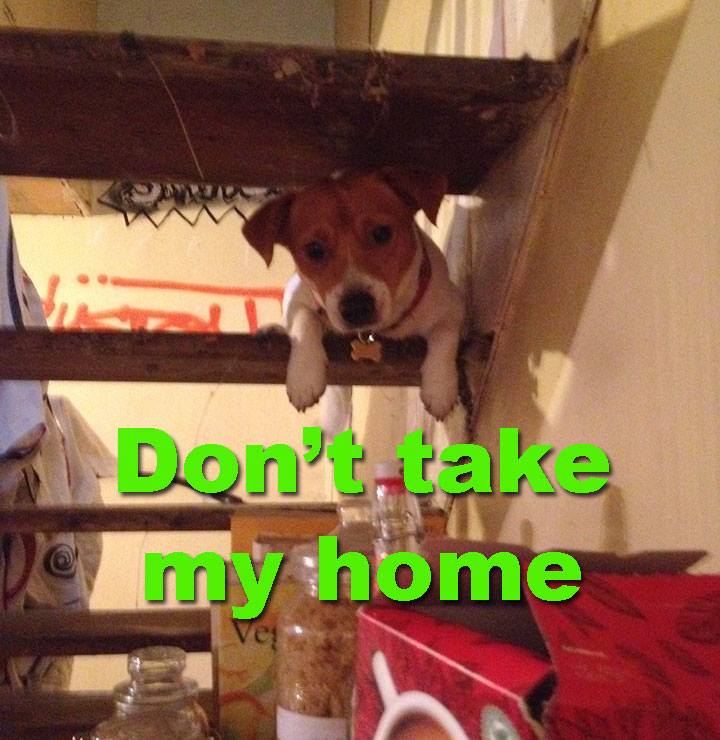 The text that follows was published by the residents of the squatted complex at Grangegorman on 24 March to describe the day long eviction attempt they succesfully resisted on the previous day. It was initally published on their Facebook page and handed out in leaflet form to people walking by the complex. The words are there own.
The text that follows was published by the residents of the squatted complex at Grangegorman on 24 March to describe the day long eviction attempt they succesfully resisted on the previous day. It was initally published on their Facebook page and handed out in leaflet form to people walking by the complex. The words are there own.
On Monday 23rd March, the squatted buildings at Grangegorman, where a community has been living for a year-and-a-half, was the subject of a violent attempted eviction by a large force of contractors and Gardaí. Here is a summary of the situation.
Grangegorman resists Eviction
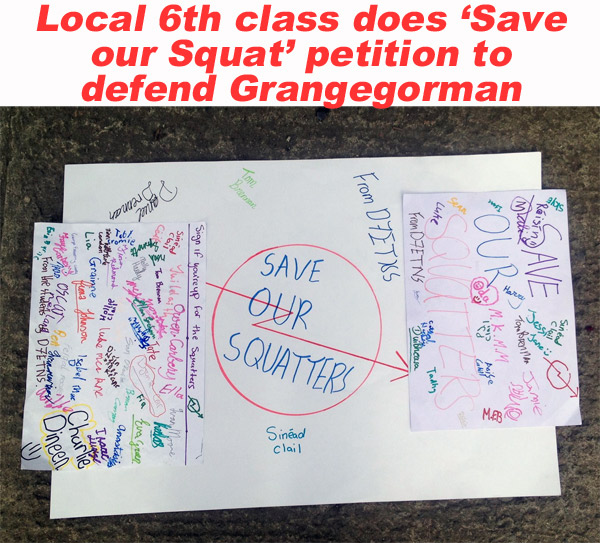 We covered the attempted eviction of the squatted complex at Grangegorman during the week of via our new Facebook page, youtube and Twitter.
We covered the attempted eviction of the squatted complex at Grangegorman during the week of via our new Facebook page, youtube and Twitter.
For those not familar with Dublin the attempted eviction is happening just 100m north of Smithfield Square. The complex consists of a mix of residentical, industrial & commercial premises that had been left derlict for up to 15 years. There had been a couple of eviction scares previously but at 6.30am on the morning of Monday 23rd March the residents were suddenly worken by the sound of a gang of over 30 men smashing their way into the compound and in at least one case into their houses.
One of our reporters was awoke shortly afterwards to a text message sayiong this was happening and they made their way down, the coverage that follows is a result of their work and the work of other WSM reporters. We've edited the updates together and improved their readibility.

